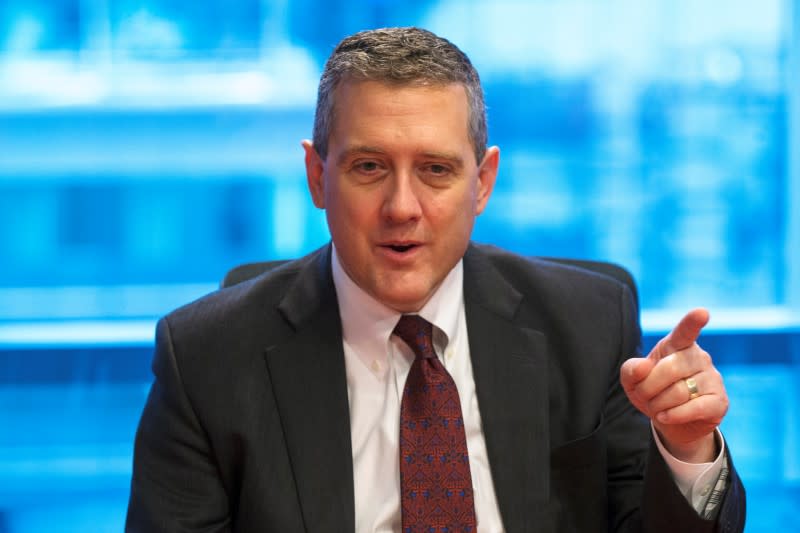In switch, Bullard warns against rate hikes, suggesting Fed's direction

By Howard Schneider
ST. LOUIS (Reuters) - One of the U.S. Federal Reserve's most prominent advocates of higher interest rates on Wednesday declared it "unwise" to move any further in light of weak inflation and global volatility, suggesting the Fed is stepping further away from plans to continue to hike rates.
St. Louis Fed President James Bullard argued steadily last year for the U.S. central bank to tighten policy and sounded alarms over the risk that continued low rates would create dangerous asset bubbles.
But on Wednesday he said the steady drop in U.S. inflation expectations is now his chief worry and said he will not be comfortable with further hikes until the trend reverses. His change of emphasis puts him more in line with dovish Fed members like board member Lael Brainard, who voiced similar inflation concerns over the past year, and may indicate an extended pause in the Fed's tightening cycle.
Bullard is a voting member of the Fed's rate-setting committee this year.
His comments echo the fears raised by Fed officials at their last policy meeting, in January. According to minutes of that session, released on Wednesday, policymakers discussed whether a more volatile global environment would throw their outlook for rates off track.
"I regard it as unwise to continue a normalization strategy in an environment of declining market-based inflation expectations," Bullard said. One other "pillar" of the Fed's decision to hike rates in December has also weakened, he said, because falling equity prices and other tightened financial conditions have made the risk of asset bubbles "less of a concern."
The Fed, he said, now has "more leeway" to take its time with rate hikes. Bullard said he in particular won't be ready to move again until inflation-linked bonds signal that investors expect prices to rise at the Fed's target 2 percent rate.
In a presentation to a group of financial analysts here, Bullard noted that the expected rate of inflation built into some bond prices has fallen as much as 50 percent since mid-2014. Bullard said he at first dismissed the slide as likely linked to the falling price of oil, but now views it as more endemic.
To hike rates in that situation, he said, would put the central bank's credibility at risk because the Fed remains far from reaching its 2 percent inflation target, considered an important sign, alongside low unemployment, of the U.S. economy's health.
"Central banks need to defend their credibility. That is why this is worrisome," Bullard said.
Recent comments by Fed officials already made it seem unlikely the U.S. central bank would raise rates when it next meets, on March 15-16, but Bullard's comments indicate deep-seated concern over the conditions facing the Fed.
On a fundamental level, the U.S. economy continues to grow and generate jobs, and recent data have given no hint that "real" activity is slowing.
Yet financial markets have moved in the other direction, pressuring stock and bond prices and in effect tightening financial conditions faster than the Fed wants.
(Reporting by Howard Schneider; Editing by Leslie Adler)

 Yahoo Finance
Yahoo Finance 